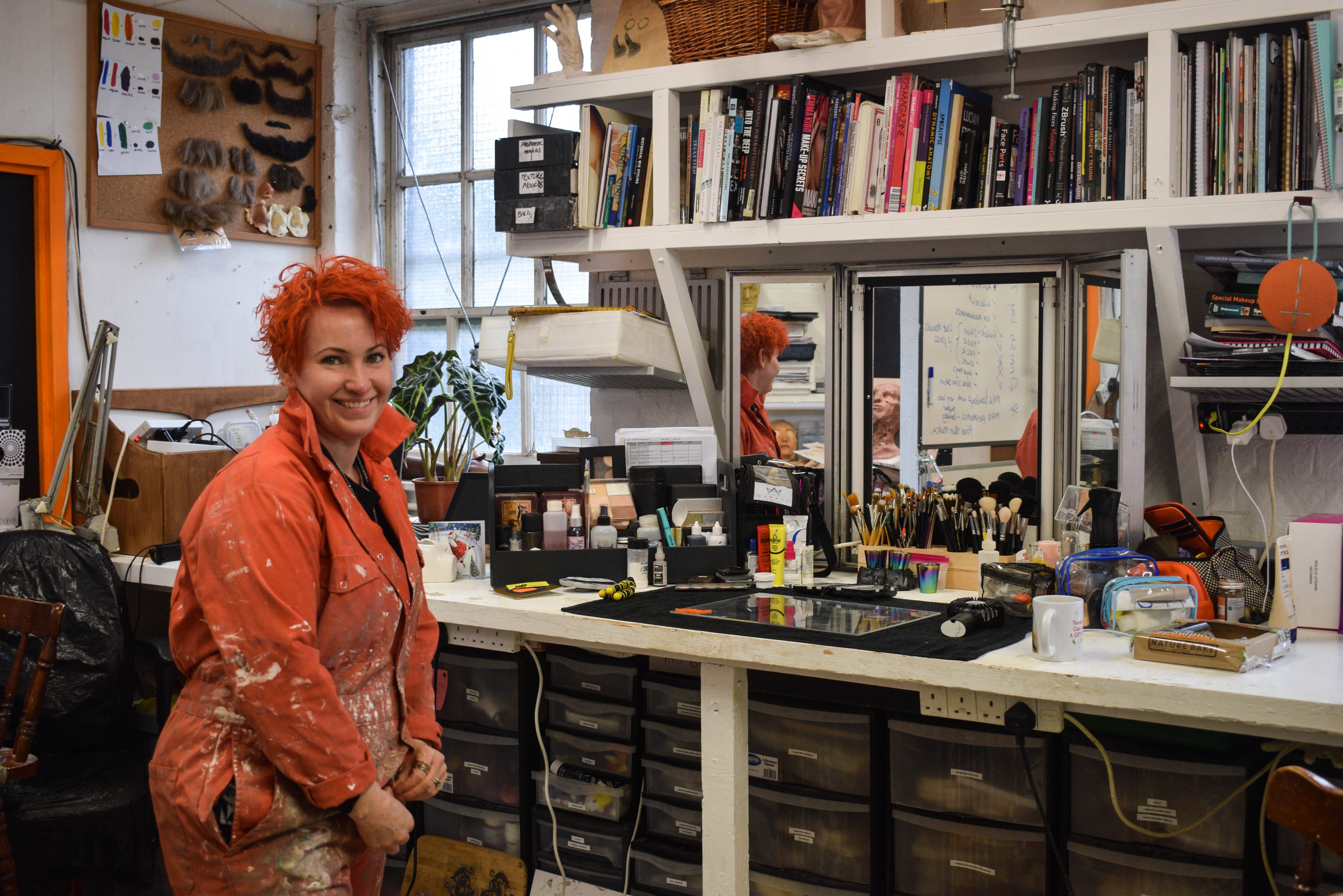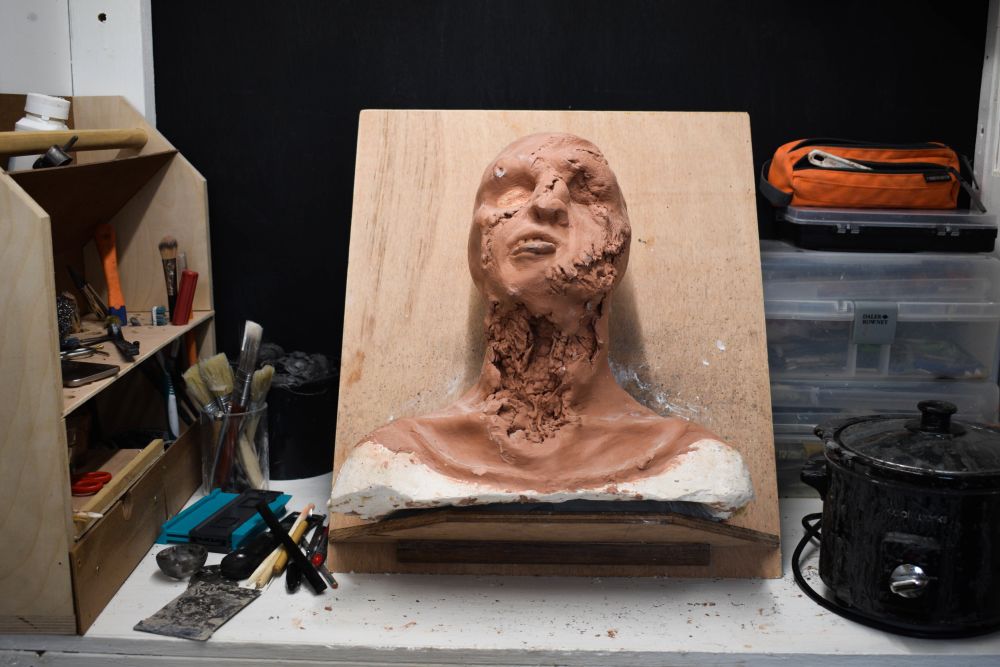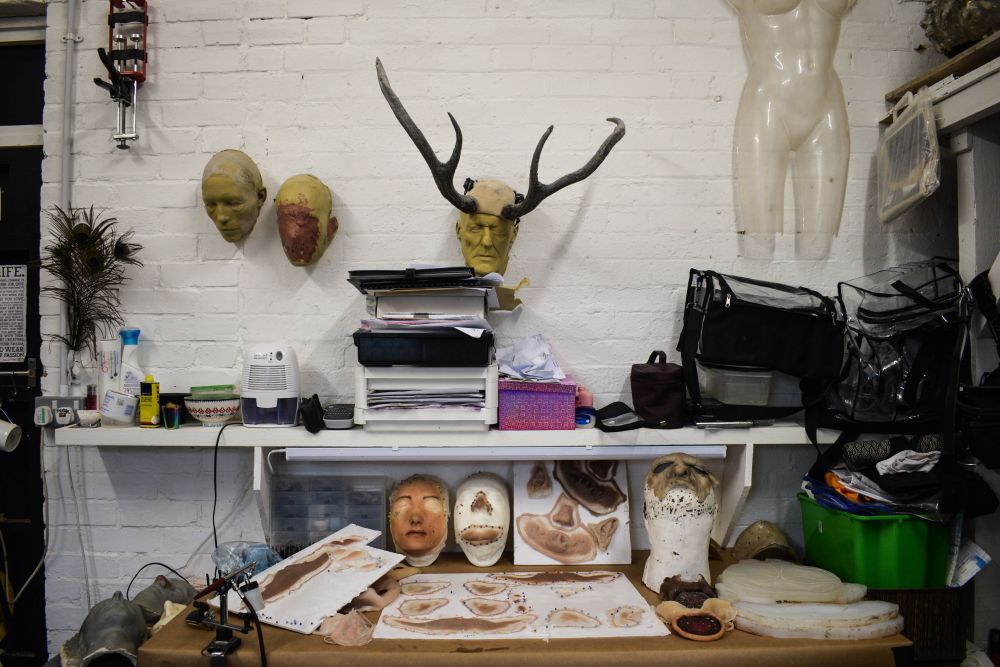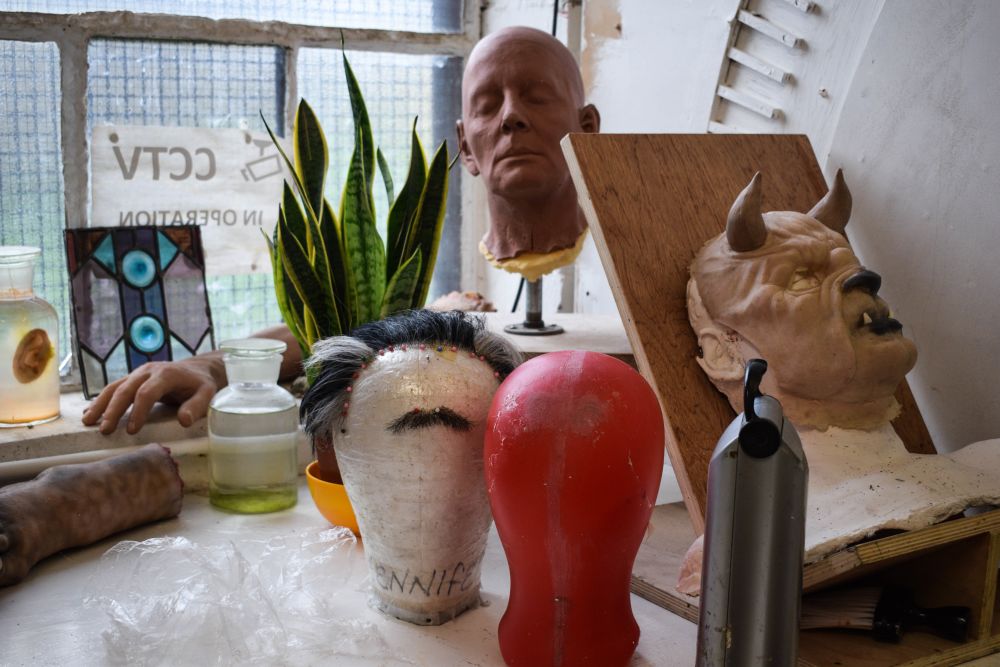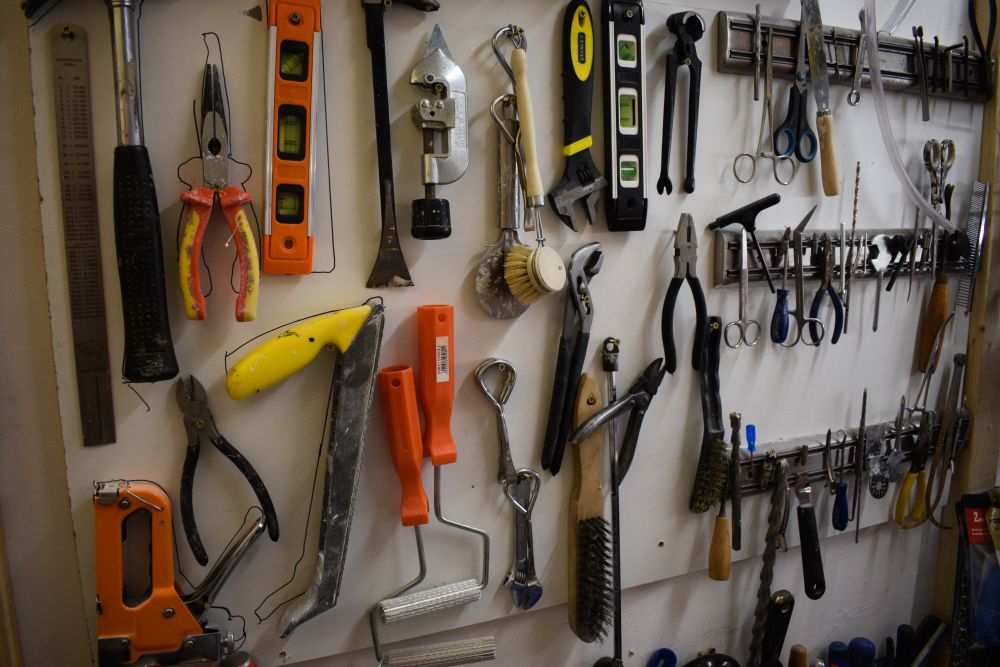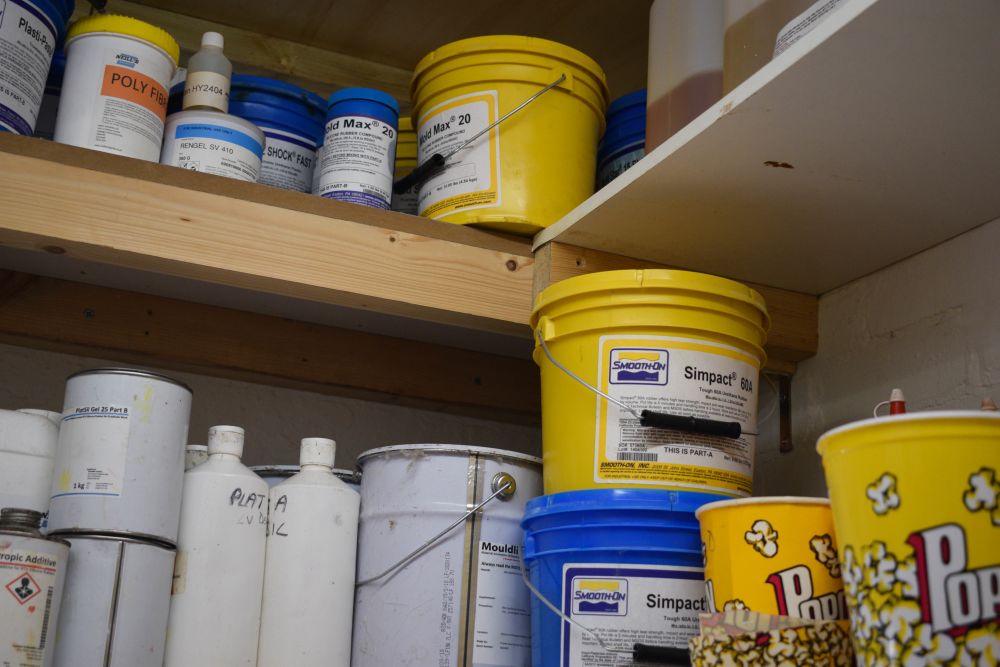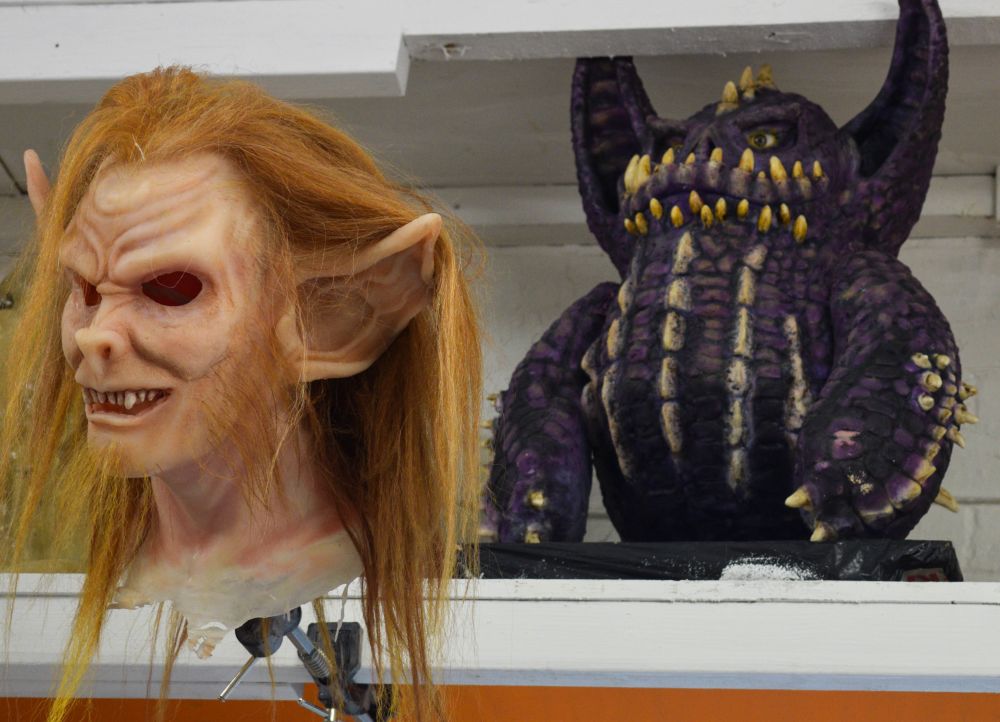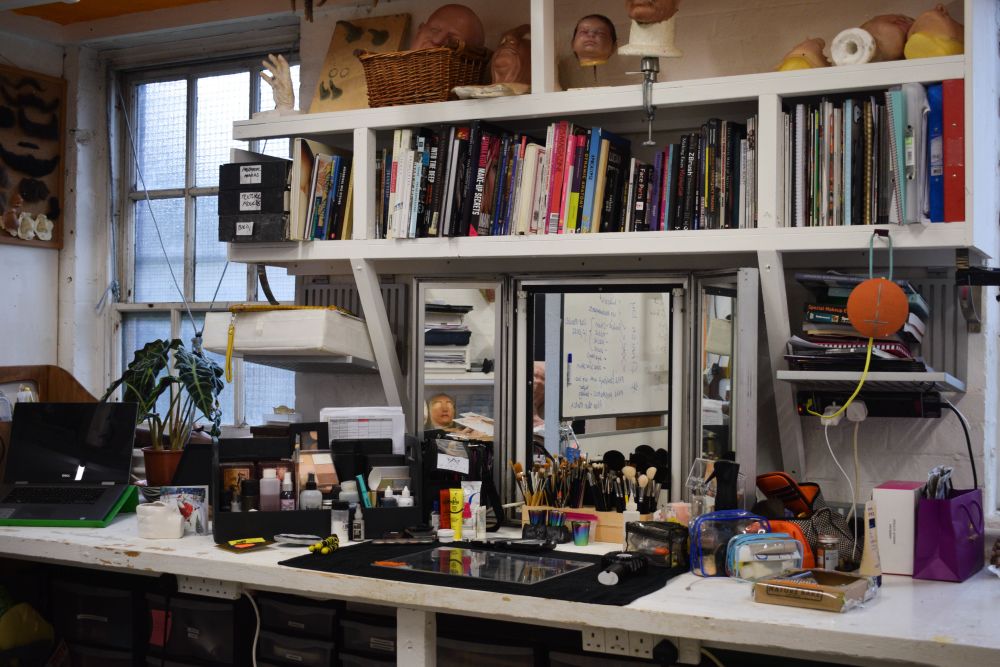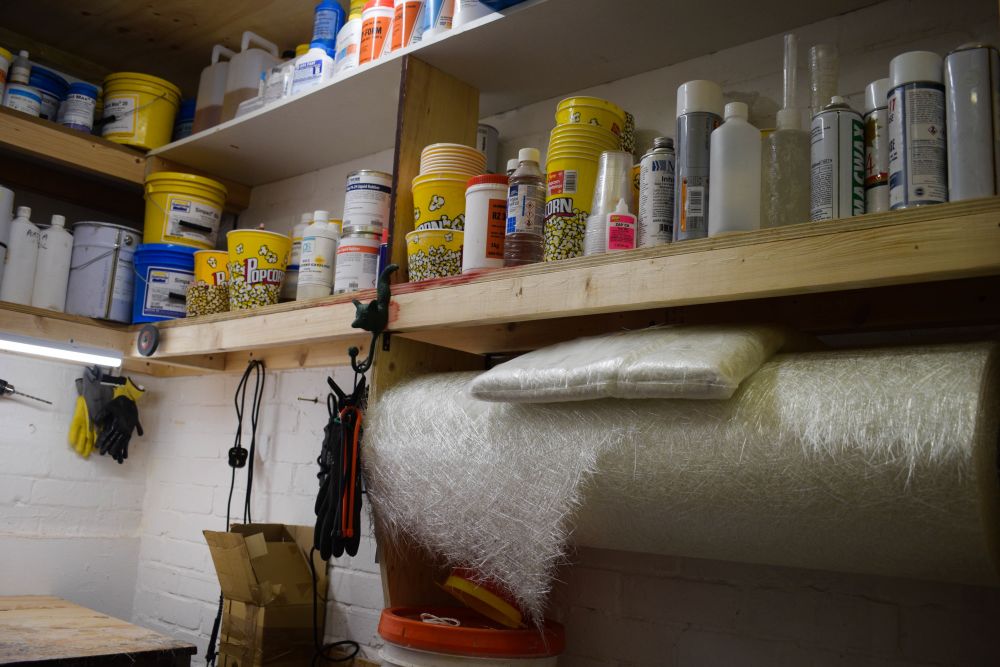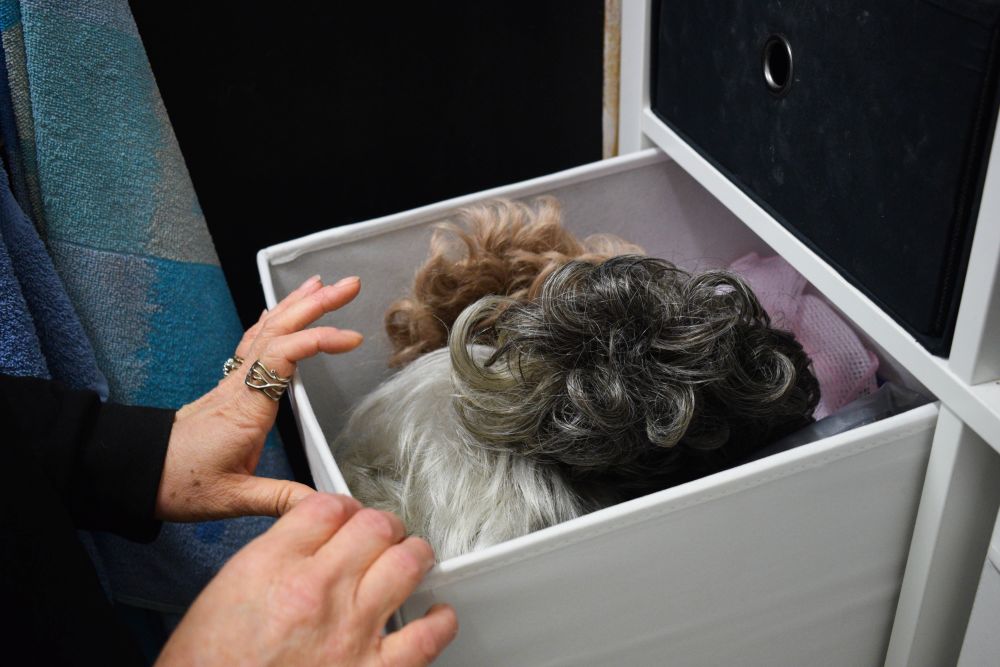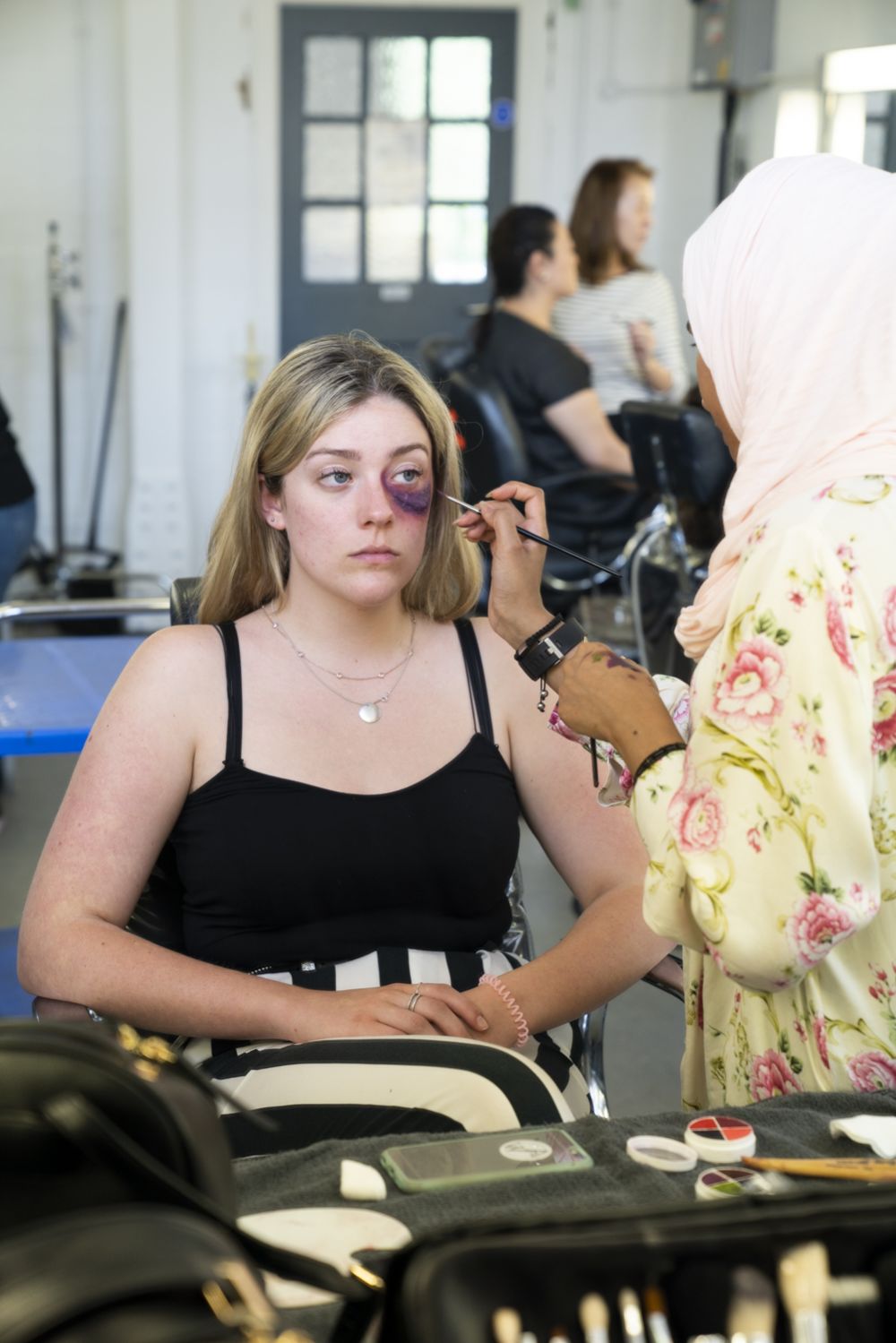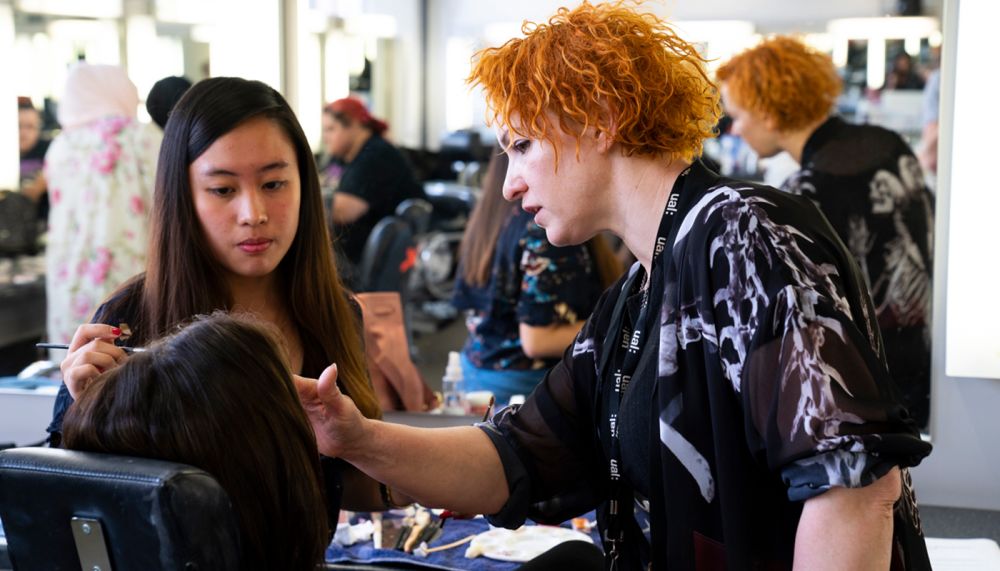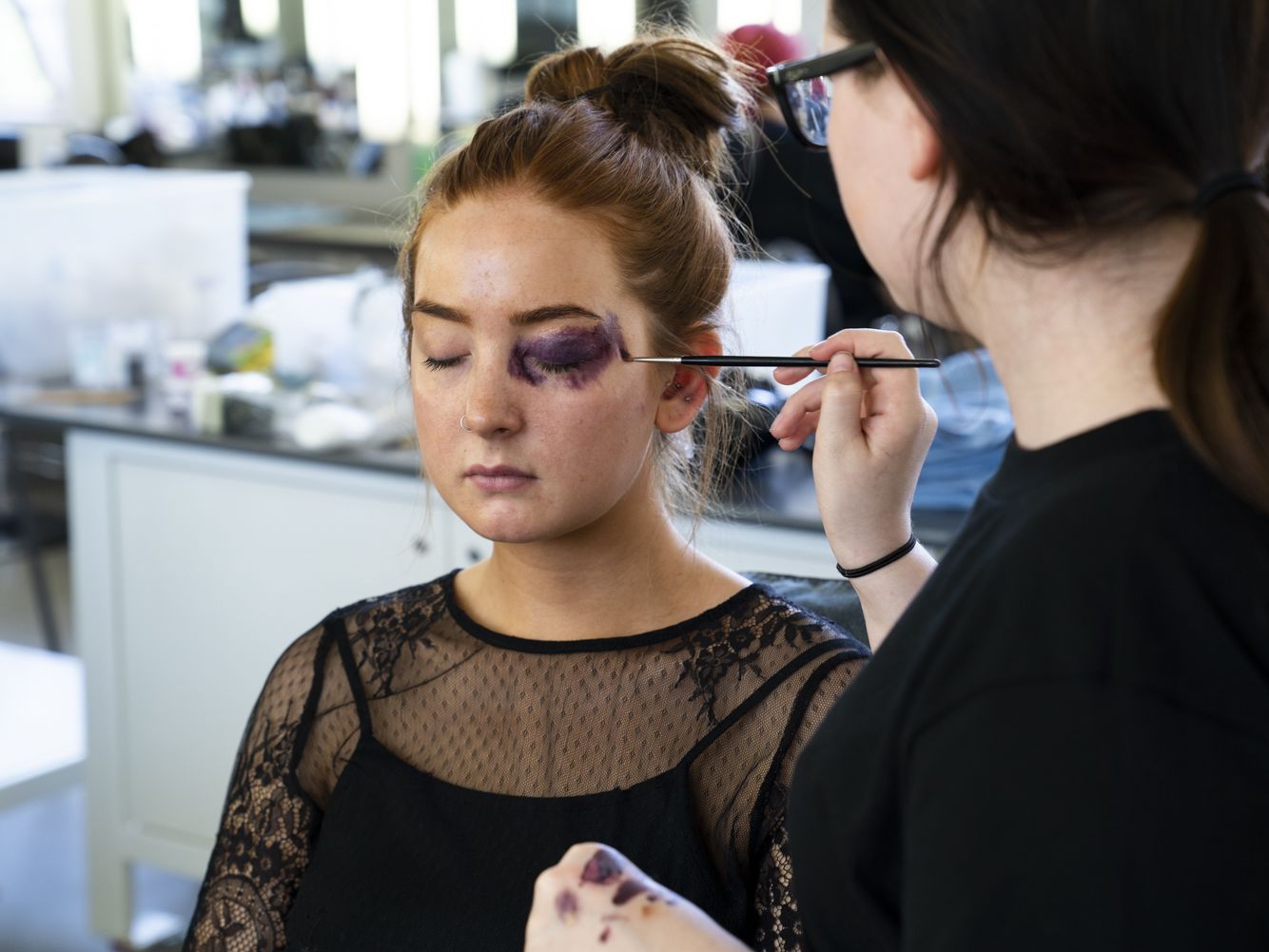We visited Jennifer Drew's studio to talk all about Special Effects (SFX) Makeup. Jennifer is a professional makeup artist specialising in prosthetics, makeup, SFX, wigs and props. She also teaches on our Special Effects Makeup for Film and TV Short Course.
She is an expert in character design, the making and application of prosthetic appliances, wig design, pastiche, prop design and hairdressing. She's worked in multiple projects spanning film, TV, theatre and fashion, working with leading industry companies, artists and designers.
She gave us a sneak peek into the fascinating world of SFX makeup.

Jennifer worked as a hairdresser and beauty therapist for about 5 years before starting to dabble in character design. She completed a wig-making course in Bournemouth and then studied prosthetics at LCF, graduating in 2011.
"After graduating, I went into industry, started doing films and that's when I got this studio. I really liked prosthetics more than hair and makeup. I liked to be able to create a whole character. Some people choose to specialise on hair, prosthetics or makeup, but I like to do everything."
Jennifer's Studio
As she enjoyed doing makeup, hair and prosthetics, Jennifer decided to set up her own company, MaXimal FX. She promoted herself as a company that could do all of it.
"I'm always employing people and collaborating with other artists."
Aside from setting up her own company, she also started her teaching qualification after graduating from LCF.
"Initially, it was meant to be a back-up plan, but it turned out to be something I really enjoyed. Susanna, who used to be my teacher and who I worked with a lot, couldn't do the Special Effects Makeup Short Course anymore and asked me if I wanted to do it."
"I really enjoy teaching, I love to see creative students at work. It serves as inspiration both for them and me. I've taken on a few assistants from my Short Courses, that have helped me in different projects."
She explains that a good assistant isn't always someone that is good at making, but someone who is thinking about what your next steps are.
Being a special effects makeup artists isn't only about the making but about, reading the scripts, developing the character, understanding how the scene will be shot, researching and, of course, making the actual props.
"You normally get contacted by someone who's doing a film, they send you the script. You then start coming up with ideas for the character you are building. For example, if someone has been hit in the face, what were they hit with? How hard? Will you see a close-up shot of it? Will it be a wide-shot? How much detail? What about the healing process? Will you see them after they've been hit?"
Jennifer finds mould making to be the most challenging part of being an SFX makeup artist.
"You usually get taught the basics of mould-making, so I had to teach myself. I've learnt a lot of it online."
Her favourite part is the application and seeing a character come to life.
"The silicone has to be made soft enough, and glued on to the correct areas of the actor's face, for it to really show movement."

Working as a freelance SFX makeup artist means that Jennifer's doesn't have a day-to-day routine. She's here, there and everywhere.
"The last four weeks I've been on a trailer. I went there everyday and applied makeup onto the actors. When I'm making prosthetics, I spend most of my time here (her studio)."
Jennifer's advice to anyone looking to start a career in special effects makeup is to be sociable and proactive.
"Be sociable, talkative. You will have to work with people a lot. You should be able to be artistic and be able to draw. Maths and chemistry aren't a requirement, but can be a good advantage, for ratios and formulas."
She also highlights how important it is for an SFX makeup artist is to really know their skills and to be firm with potential employers who might not know the whole picture.
"People will assume something can be made, bought or done really quick. And it can't - the whole process takes long. Just sculpting a face would take a week, moulding it another week, etc, so you are looking at about 3 weeks."
Jennifer recommends the Short Course for those who are looking to start a career in this field. Before committing to an expensive degree, you can take a Short Course and decide if it's for you.
If you are feeling inspired, check-out out SFX Short Course for adults and our SFX Short Course for 16-18 year-olds.
Follow Jennifer Drew on Instagram: @jennfizzgig
